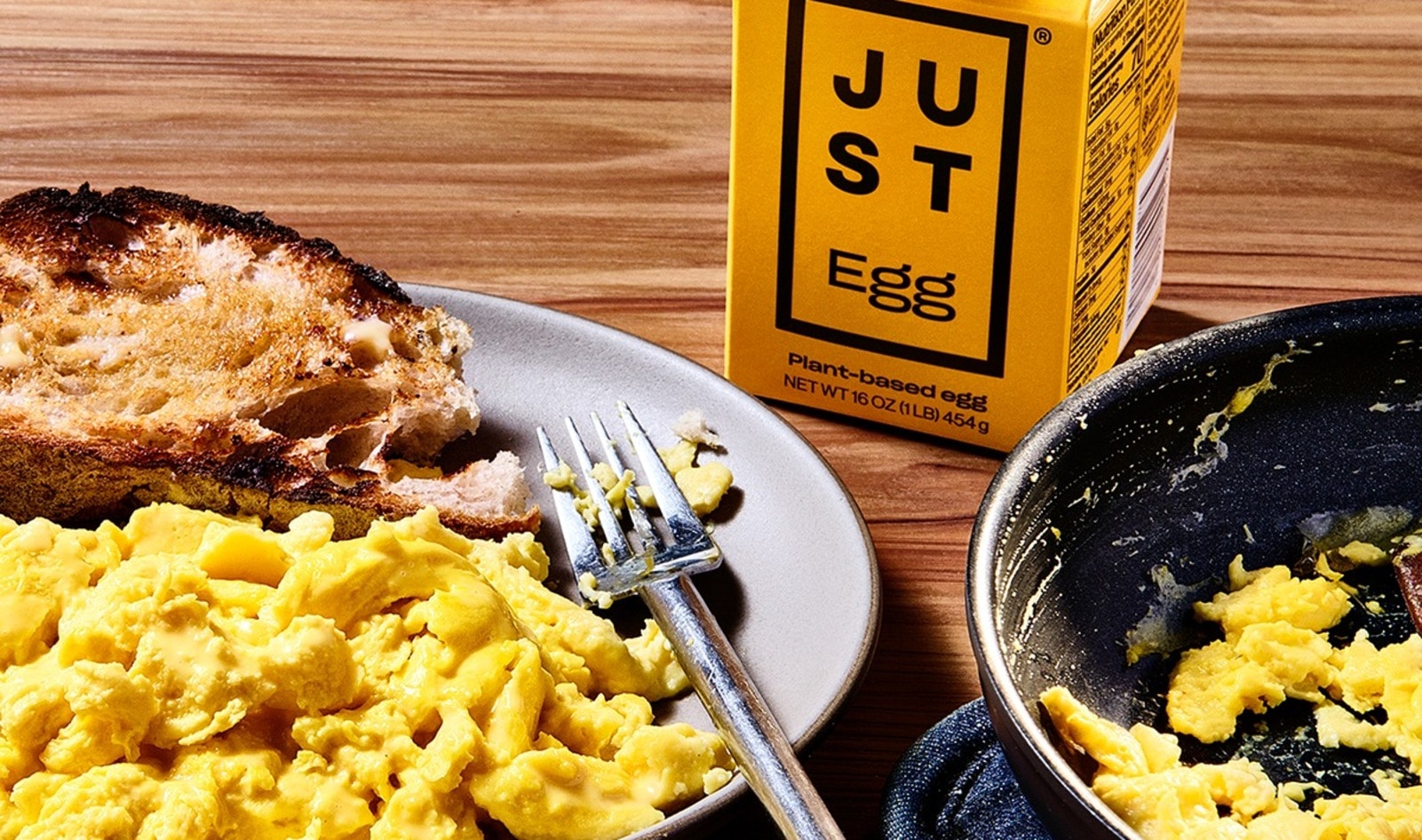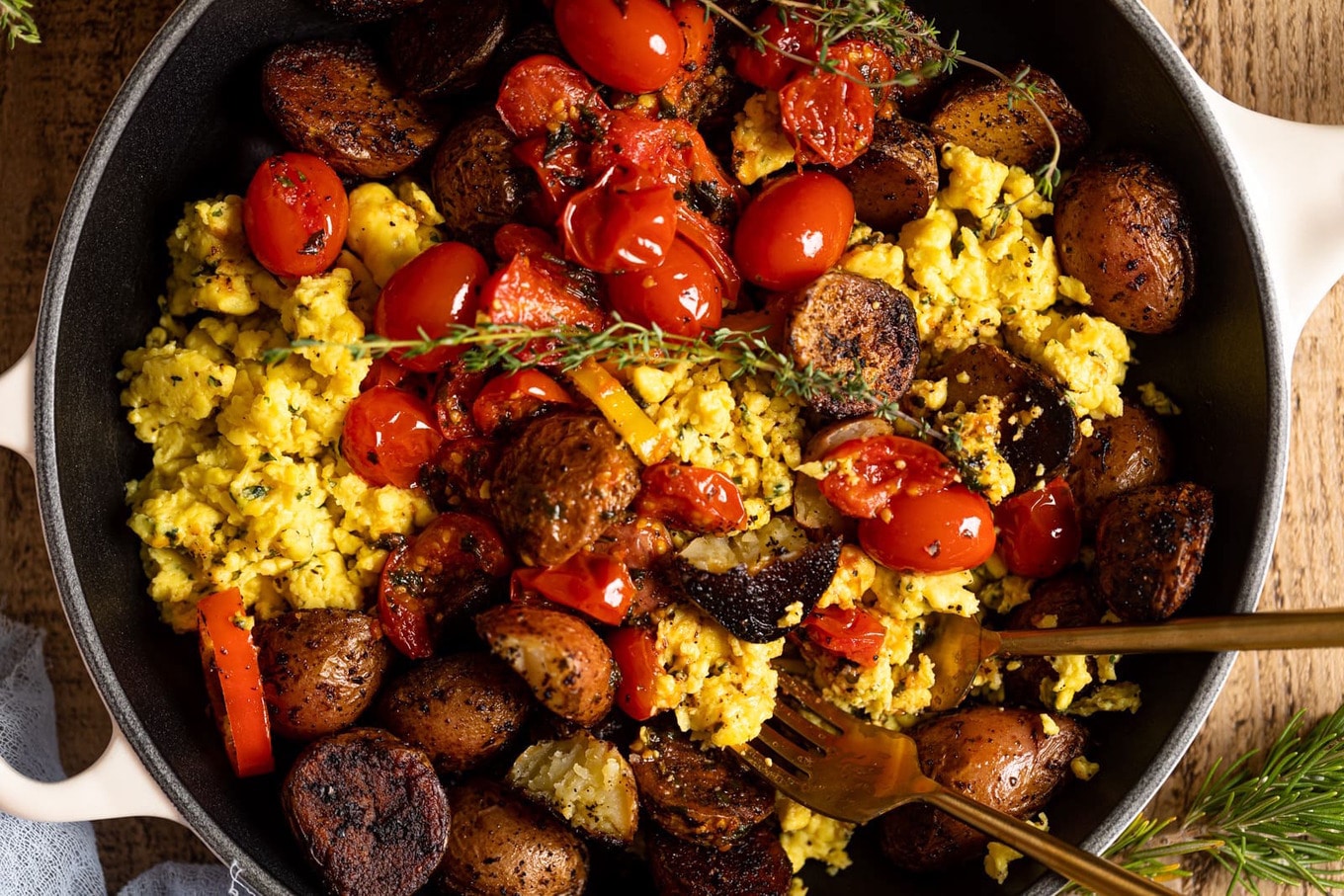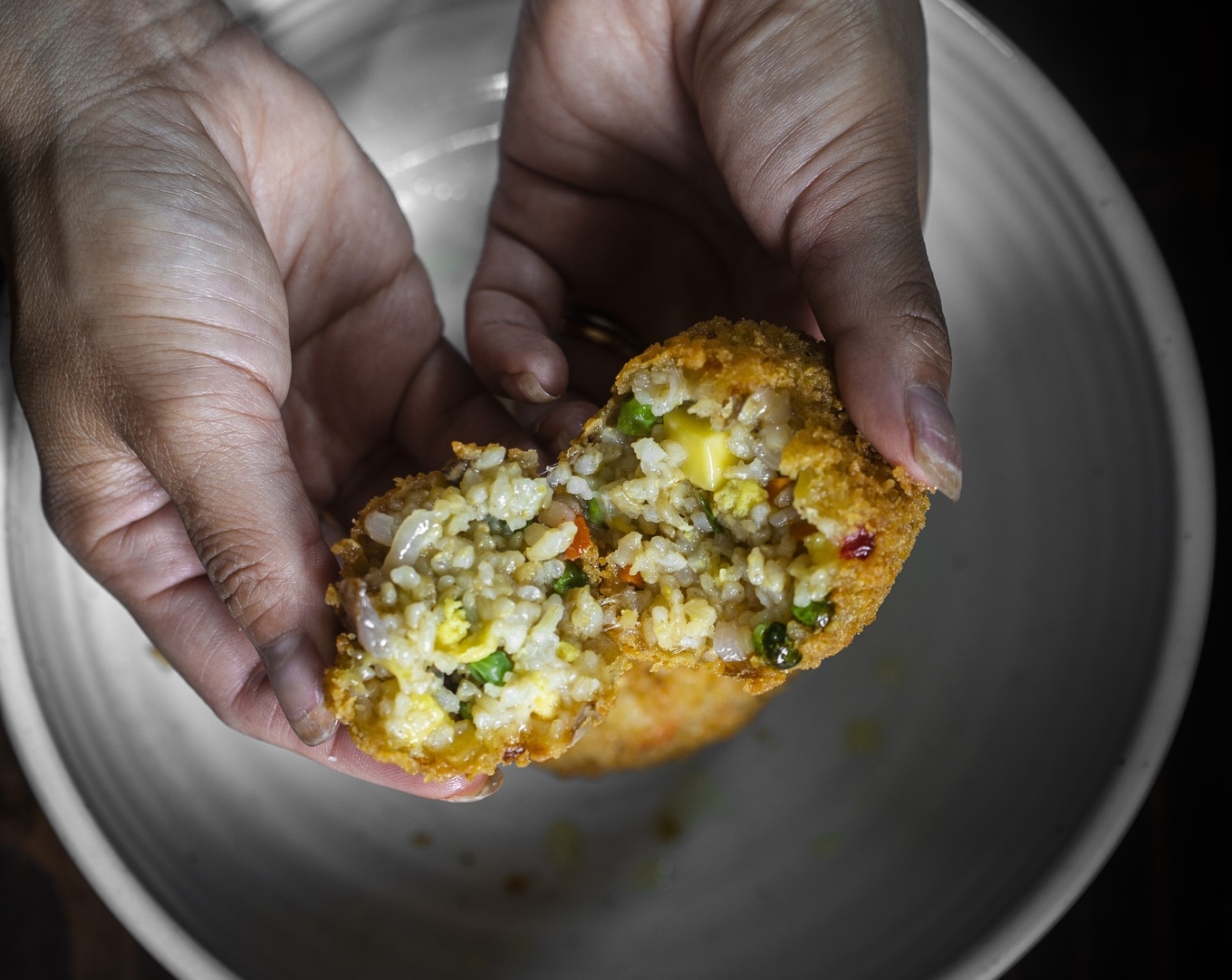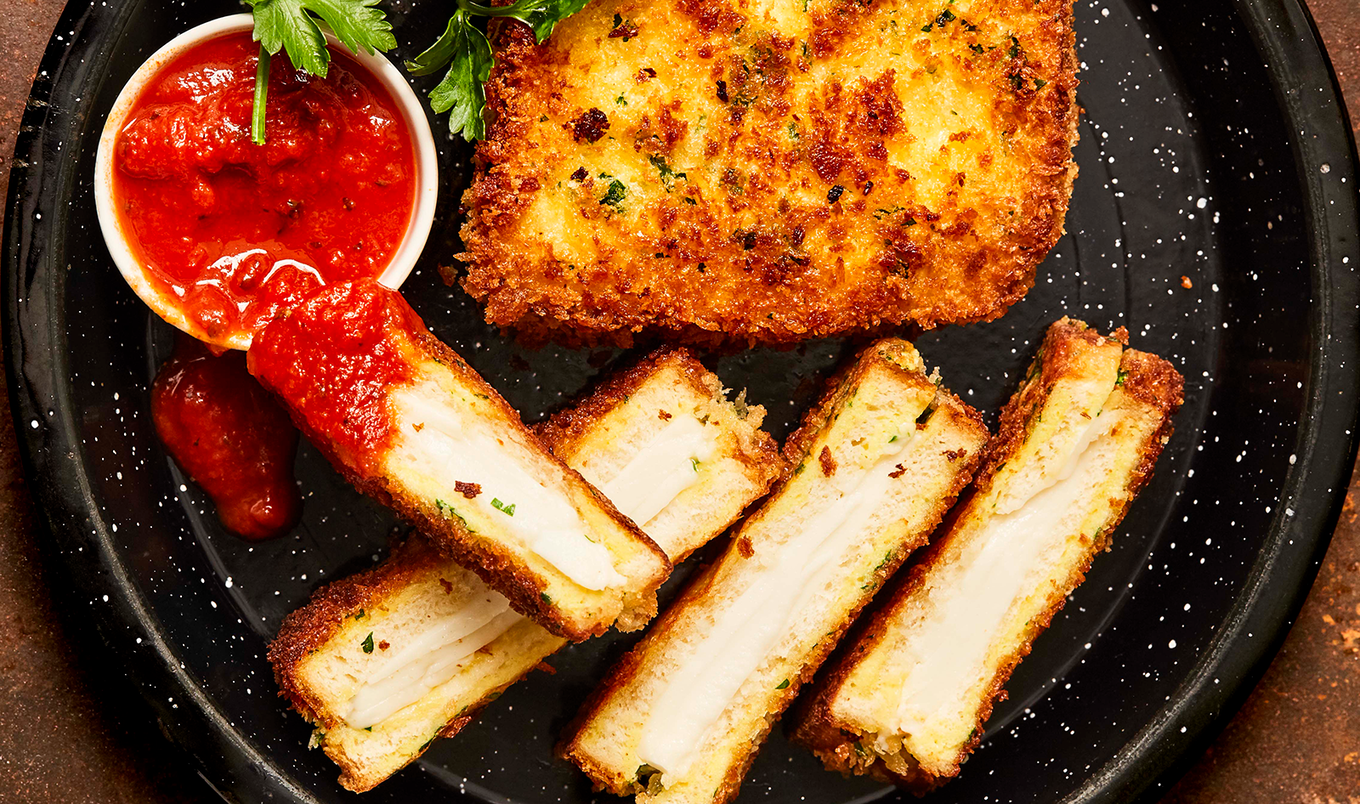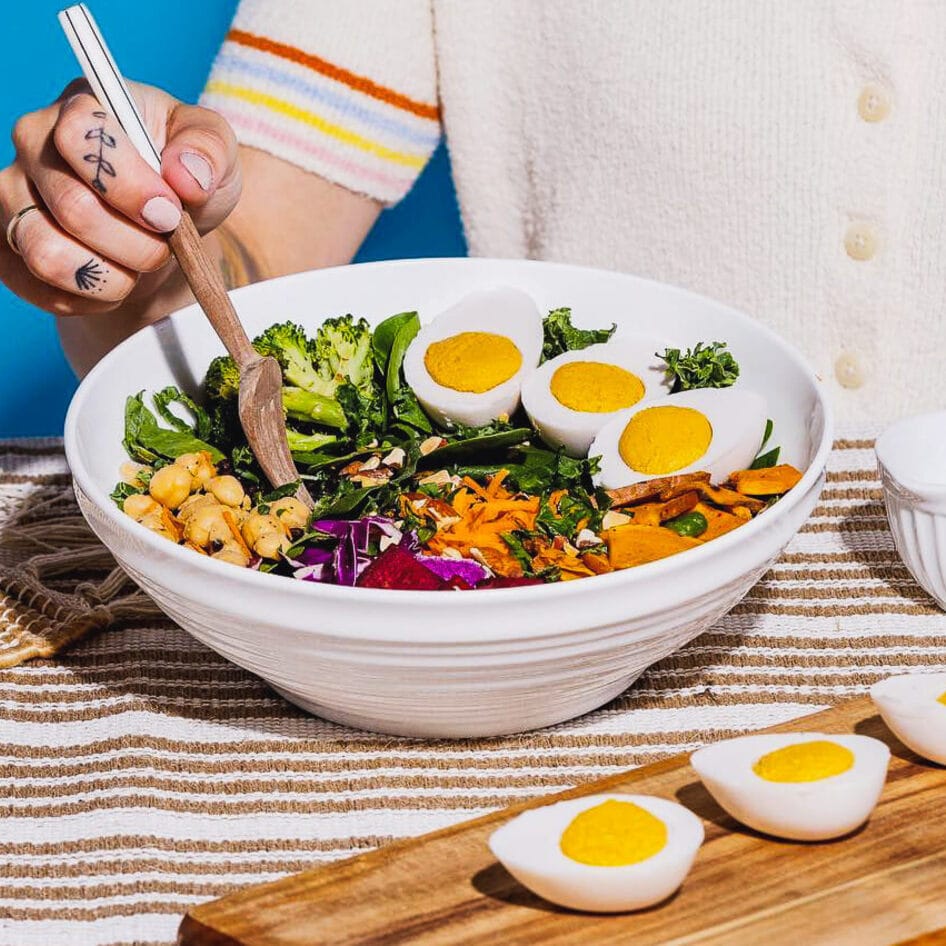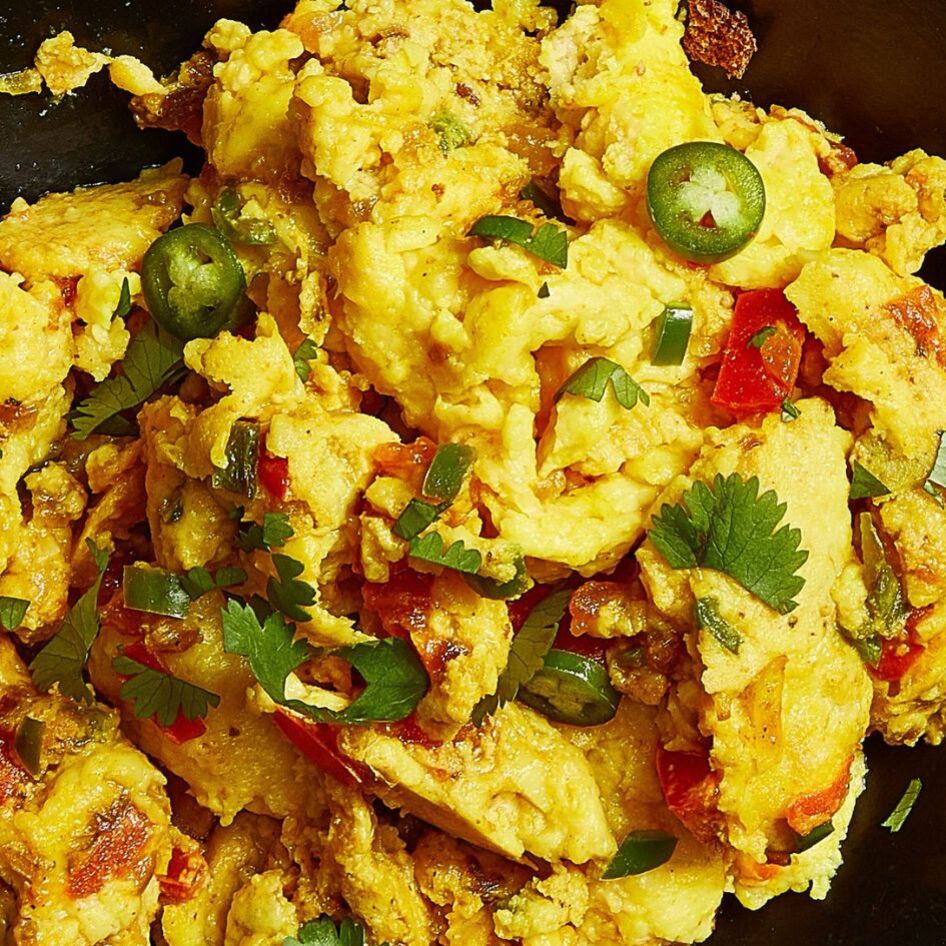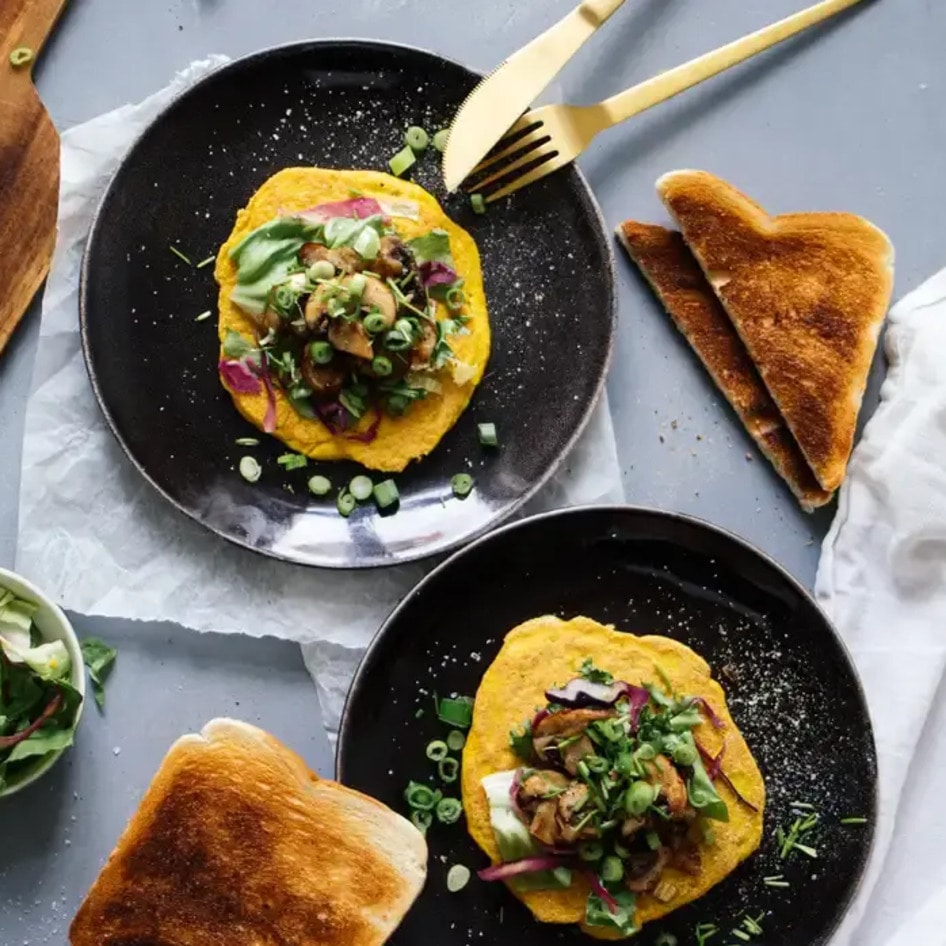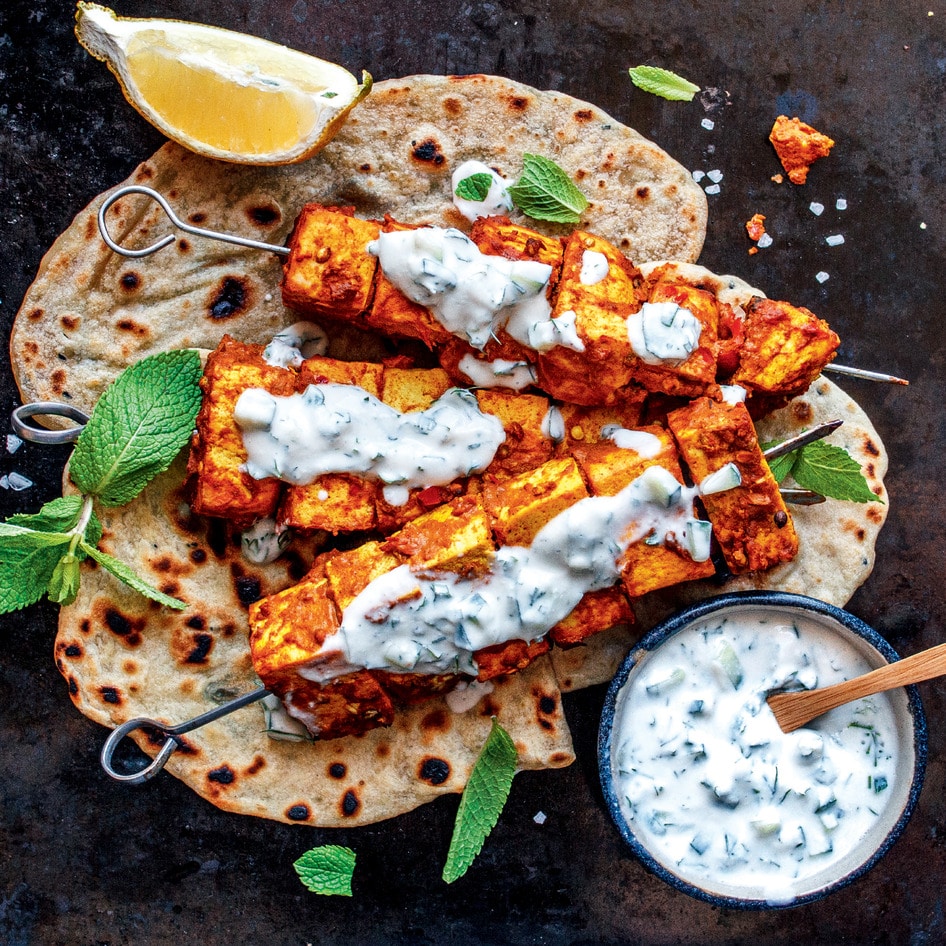For decades, tofu has been the dominant vegan alternative for chicken eggs. And we’re certainly not knocking this versatile, nutritious ingredient; but while a block of soy can certainly scramble nicely and blend up into a quiche, the taste and texture aren’t exactly like egg.
If you’re craving a vegan egg that tastes just like the real deal, Eat Just has you covered with Just Egg, a plant-based egg replacement that can scramble, bake, and fry just as well as its inspiration.
Just Egg is a veritable game changer, not just for vegans craving familiar comforts, but for the food service industry and the planet. The recognizable yellow bottle has become a mainstay on most supermarket shelves, has been integrated into restaurant and café menus, and can even be seen in commercials during primetime television.
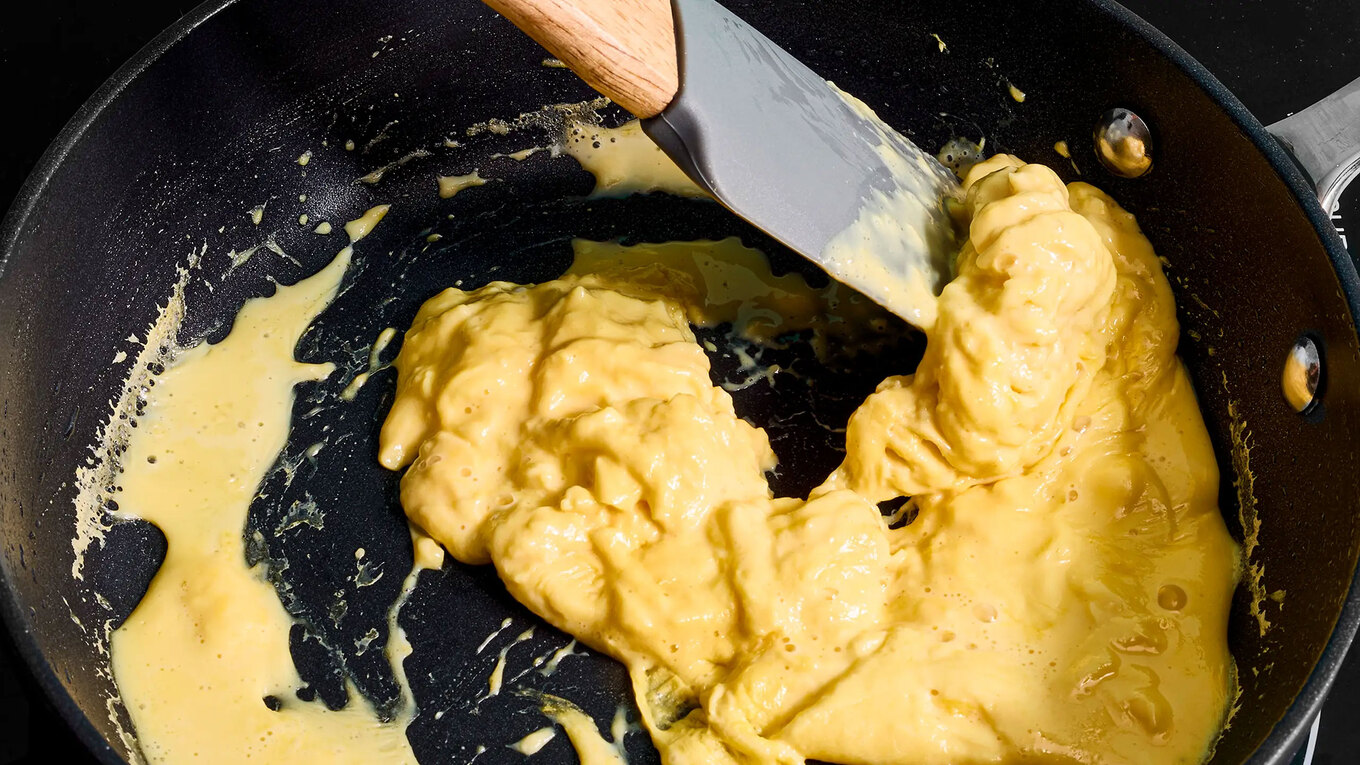 Eat Just
Eat Just
We like to think the folks at Eat Just conjured up some vegan magic, but the truth is, there’s a good amount of food science and research that went into this revolutionary, plant-based product. Here’s everything you need to know about Just Egg, plus five fantastic recipes to use it.
What is Just Egg?
Just Egg is a mung bean-based vegan egg substitute. The inaugural product comes in a bottled, liquid egg form that can be scrambled, fried, and baked in much the same way a whole chicken egg can.
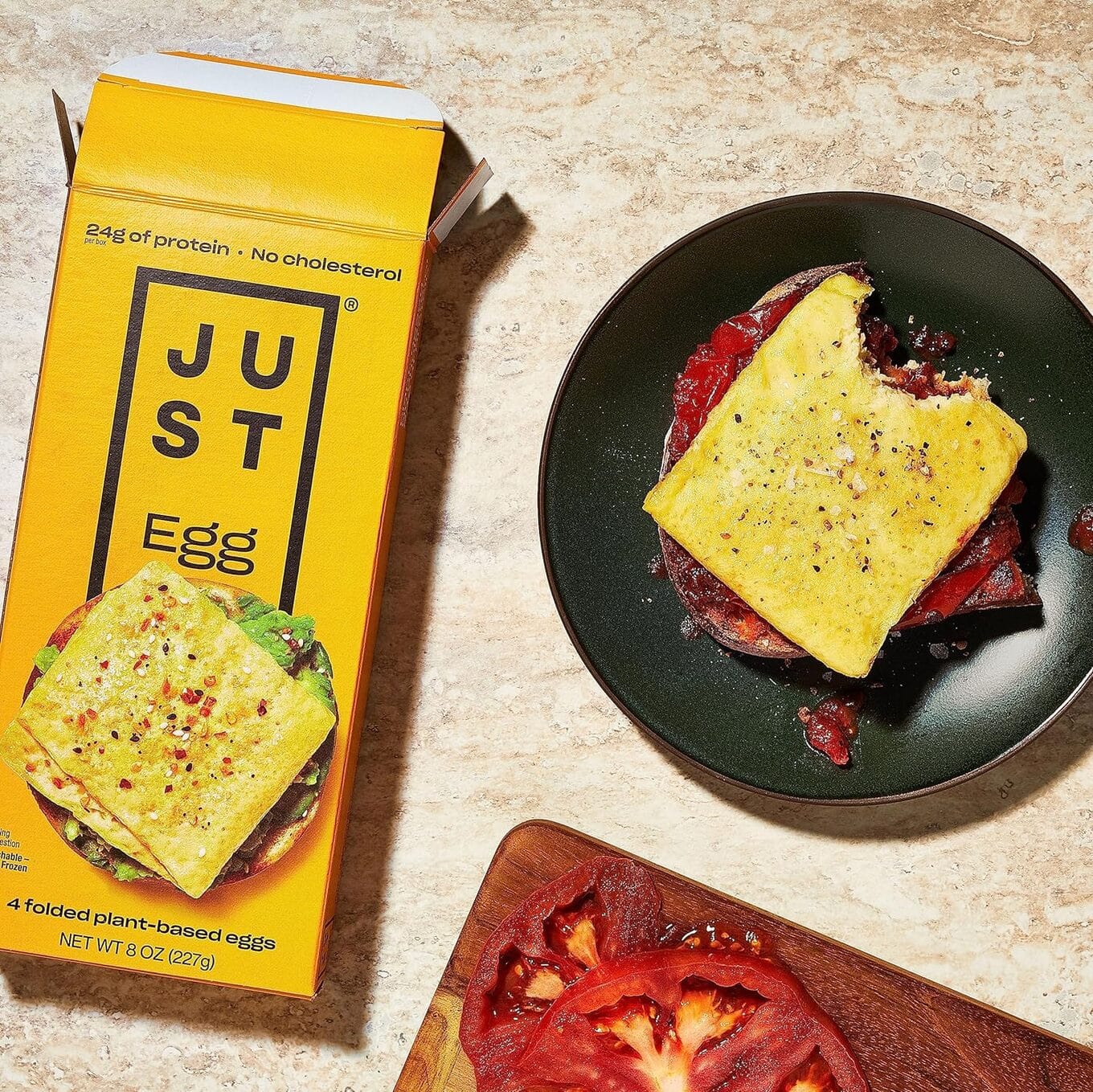 Eat Just
Eat Just
Subsequent products include Just Egg Folded (egg patties perfect for sandwiches and toasts) and Just Egg Breakfast Burritos.
While liquid Just Egg can replace chicken eggs in a one-for-one swap in many culinary applications, note that it cannot replicate egg whites. For egg white substitutes, give aquafaba (chickpea brine) a try.
Just Egg nutrition
Unlike many plant-based alternatives, Just Egg doesn’t rely on soy. The main ingredient is mung bean protein isolate. This unexpected base supposedly lends itself to Just Egg’s versatility. We won’t sugar-coat it, though—Just Egg is a product of scientific innovation and consequently is made from a handful of ingredients you can’t find at the store.
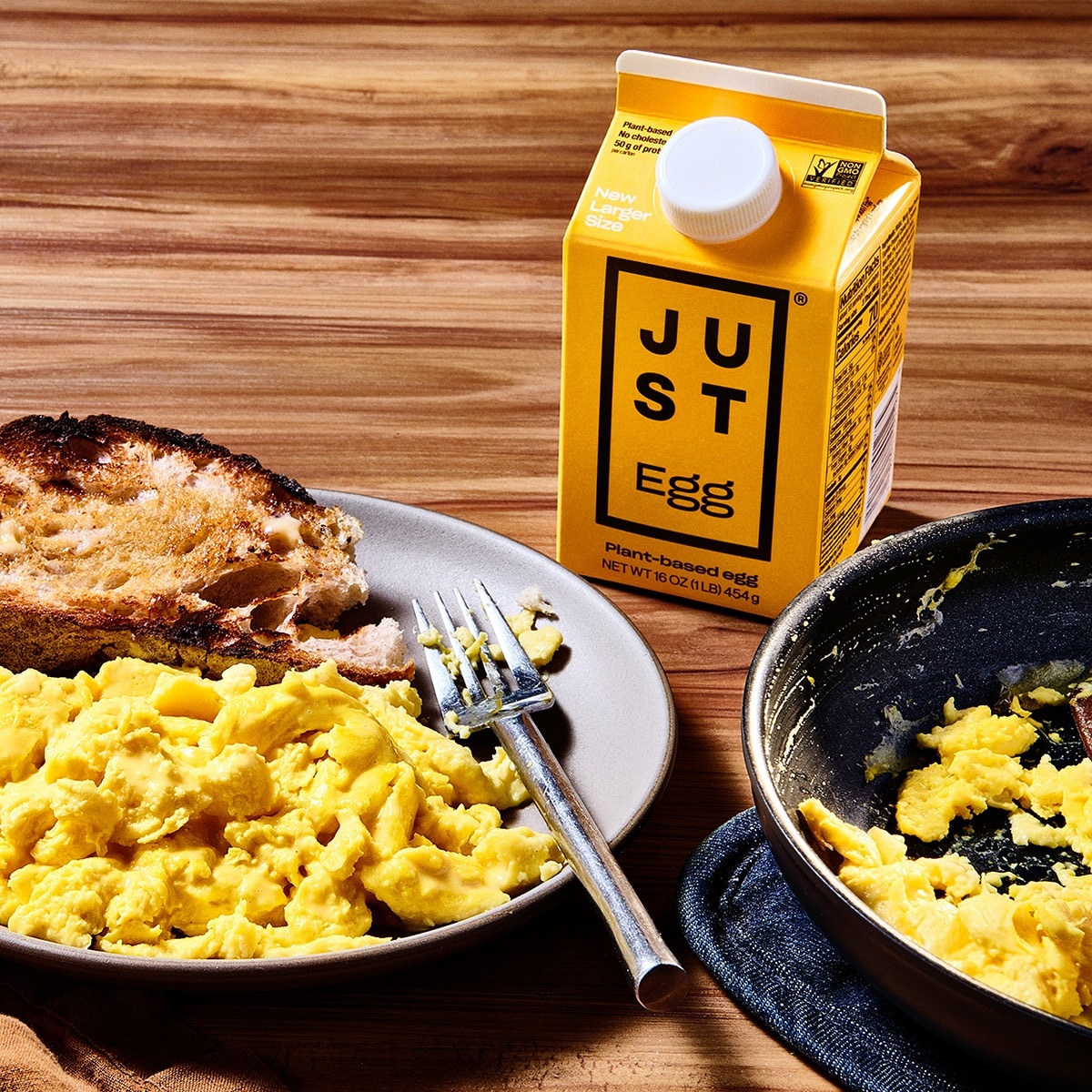 Eat Just
Eat Just
In addition to mung bean, Just Egg contains water, canola oil, and less than 2 percent of dehydrated onion, vegan natural flavors, soy lecithin, salt, potassium citrate, sugar, tapioca syrup, gellan gum, and a few preservatives.
Don’t let that shock you—the ingredient list is in line with many plant-based products, so if you have Impossible patties in your fridge or vegan chicken nuggets in your freezer, you’ll likely find they contain the same (as do countless vegan and non-vegan packaged goods).
What Just Egg doesn’t contain is cholesterol, trans fat, or animal-based hormones. Chicken eggs can’t claim the same.
Is Just Egg healthy?
Healthy is a relative term and it all depends on an individual’s definition. If “healthy” to you means only ingredients you recognize, you may want to stick to your tofu scrambles and chickpea flour omelet. However, if “healthy” means no hormones or cholesterol and a decent macronutrient profile, then Just Egg will fit your standards just fine.
A three-tablespoon serving of liquid Just Egg contains 70 calories, five grams of unsaturated fat, 170 milligrams of sodium, and five grams of protein. In comparison, a large chicken egg (the standard size) also contains 70 calories in addition to five grams of total fat (1.5 grams of harmful saturated fat), 185 grams of cholesterol, 70 milligrams of sodium, and six grams of protein.
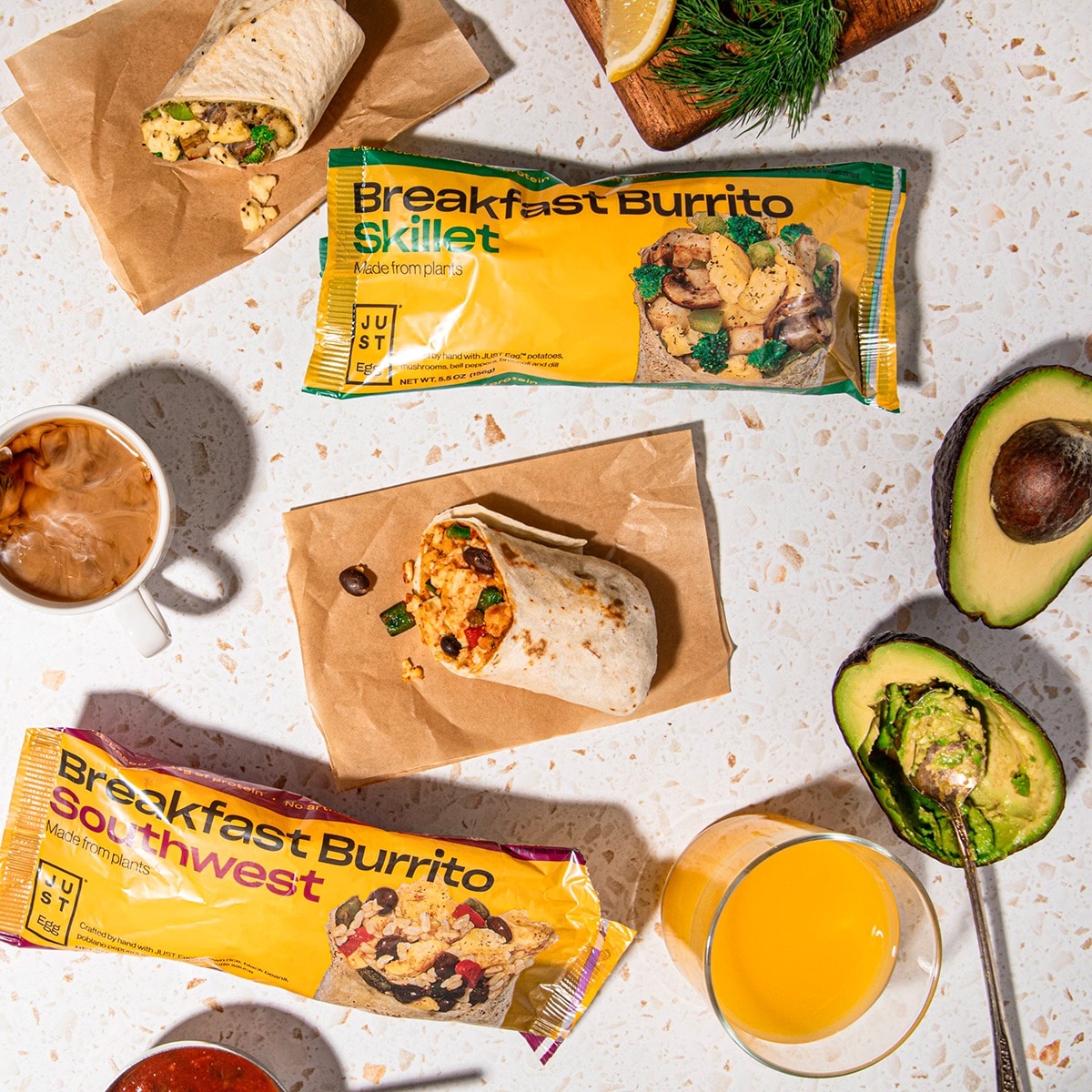 Eat Just
Eat Just
BECOME A VEGNEWS VIP: Get exclusive product deals, freebies, and perks galore!
What isn’t noted on chicken egg nutrition labels is the FDA allowance for trans fat. Any food with 0.5 grams or less can claim to contain zero grams of trans fat. So, let’s say a chicken egg contains 0.4 grams. If you ate two eggs, you’d be up to 0.8 grams of this damaging fat, completely ignorant of the fact.
While 0.8 grams may seem negligible, the USDA does not offer a minimum amount for trans fat—any amount can be harmful, and the US Dietary Guidelines recommend keeping consumption “as little as possible” or not at all. This is due to the risk trans fat consumption poses for coronary heart disease.
Like most processed plant-based products, JUST Egg is a significantly healthier option than its animal-based counterpart and can be a part of a healthy diet when consumed in moderation.
What’s wrong with chicken eggs?
The global human population consumes 1.4 trillion chicken eggs annually. This level of consumption requires 93 million acres of land and 51 billion gallons of water to sustain, according to Eat Just. To break that down, that’s 53 gallons of water per chicken egg. Yes, some of that is water for the chickens, but the vast majority of that is dedicated to growing the feed needed to raise egg-laying hens. Essentially, we’re growing food to produce food, which ultimately results in a dramatic loss of resources.
By eliminating the chicken and making eggs from plants, Eat Just claims to use 98 percent less water than conventional chicken egg production. The brand also claims to use 83 percent less land and emit 93 percent fewer carbon dioxide emissions.
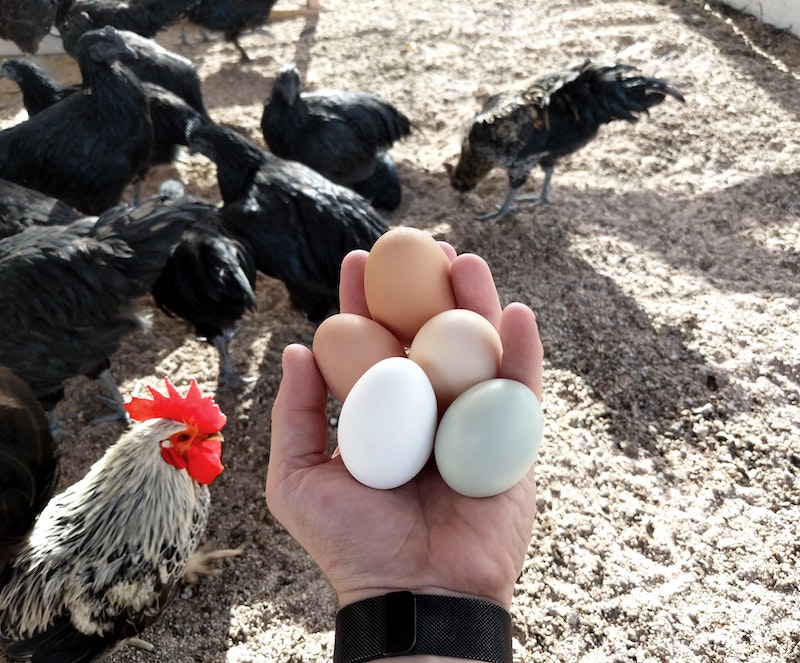 Daniel Tuttle/Unsplash
Daniel Tuttle/Unsplash
According to estimates suggested by the Food and Agriculture Organization (FAO), the world will have to produce 70 percent more food to feed an expected global population of 9.1 billion in 2050 if we continue with our current animal-based consumption rates. That simply doesn’t seem sustainable or possible given the fact that we cannot conjure up more land to meet those demands.
Going plant-based is a viable solution, and the Just Egg revolution is helping to curtail the incessant use of our natural resources. No, this single product won’t save the world—it’s going to take a lot more than a morning scramble—but it is helping to shift the mainstream perspective in the right direction.
5 vegan Just Egg recipes
Just Egg comes in three varieties—the original liquid egg, folded, and breakfast burritos. Here are five vegan Just Egg recipes to make for yourself, your family, and house guests.
1 Vegan Breakfast Egg & Potatoes
Bursting with juicy grape tomatoes, crispy potatoes, and fluffy Just Egg, this hearty breakfast is satiating enough to enjoy for breakfast or dinner. It’s the perfect dish to make for a crowd of mixed eaters—particularly if some of those eaters are vegan skeptics. One bite and they’ll beg for seconds.
GET THE RECIPE
2 Korean-Style Suppli (Fried Rice Balls)
These Korean-style fried rice balls are guaranteed to become a new party appetizer favorite. Made with vegan egg, vegetable fried rice, and vegan cheese, they’re crispy, delicious, and incredibly addictive.
Get the recipe
3 Crispy Fried Vegan Grilled Cheese With Marinara Dipping Sauce
Beyond scrambled eggs and fried rice, Just Egg can also be used in batters for dishes such as French toast and this extra crispy fried vegan grilled cheese. This mozzarella stick-inspired sando is dipped in Just Egg before its fried for an extra crisp exterior.
Get the recipe
4 Disney’s Famous Vegan Chocolate Chip Cookie Fries
Those with a sweet tooth will love these Disney-inspired vegan chocolate chip cookie fries, which are made with vegan egg, butter, and of course, vegan chocolate chips. Make sure to serve with plenty of chocolate or raspberry dipping sauce.
Get the recipe
5 Whole Wheat Pecan and Maple Pie
Next time you’re trying to impress your loved ones with a crowd-pleasing dessert, give this pecan and maple pie a try. Made with vegan egg, it’s buttery, indulgent, and decadent—especially when served with a big helping of vegan ice cream.
Get the recipe
For more plant-based stories like this, read:
JUMP TO ... Latest News | Recipes | Guides | Health | Subscribe

